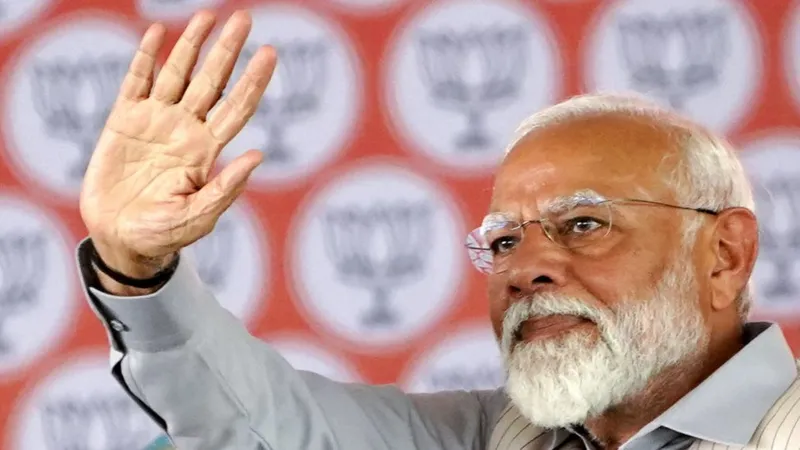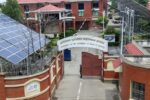MUMBAI: India and China must urgently address their border disputes to improve bilateral relations, Indian Prime Minister Narendra Modi has said.
The two countries share an ill-defined, 3,440km (2,100-mile)-long border in the Himalayas, which has been a source of tension for decades.
Mr Modi made the comment during a rare interview with Newsweek magazine.
Opposition parties have often accused him of staying silent on reported Chinese incursions along the border.
In his almost 10 years in office, Mr Modi has given just a handful of interviews to the press and has not addressed a single news conference in India.
But just days before voting starts in India’s general election, the prime minister has given interviews to three news outlets – Thanthi TV and the Assam Tribune in India, and the American magazine Newsweek.
In the latest interview, Mr Modi didn’t directly comment on the opposition parties’ allegations that China had captured large parts of Indian territory. He instead talked about the importance of India’s relations with China.
He said peaceful relations between the two countries were important for the entire region and the world.
“I hope and believe that through positive and constructive bilateral engagement at the diplomatic and military levels, we will be able to restore and sustain peace and tranquillity at our borders.
“It is my belief that we need to urgently address the prolonged situation on our borders so that the abnormality in our bilateral interactions can be put behind us,” he said.
He also commented on India competing with China as a hub for manufacturing. In the recent past, global giants like Apple, Boeing and Tesla have reportedly been looking to either set up manufacturing plants in India or increase sourcing from the country.
“India, as a democratic polity and global economic growth engine, is a natural choice for those looking to diversify their supply chains,” Mr Modi said.
Mr Modi and Home Minister Amit Shah have previously denied that China had captured any Indian territory. India’s main opposition Congress party, however, says that the government makes it harder for India to deal with China’s “illegal encroachments” each time it “gives a clean chit” to its neighbour.
Tensions between the two countries escalated in 2020 when Indian and Chinese troops clashed at the border near the Tawang sector of Arunachal Pradesh state, the eastern tip of India.
Called the Galwan Valley battle – it was fought with sticks and clubs, not guns – and was the first fatal confrontation between the two sides since 1975. The clashes left at least 20 Indian and four Chinese soldiers dead.
Since then, there have been several minor clashes between troops even as officials on both sides work towards a de-escalation plan.
Mr Modi’s Newsweek interview, published on Wednesday, comes almost a week before India’s general election is due to get under way. Strategists and opinion polls have predicted a third consecutive term for Mr Modi.
The interaction was in the form of a written interview, followed by a “90-minute conversation” with Mr Modi at his official residence, according to the magazine.
Mr Modi addressed other topics, including allegations of discrimination against minorities by his government. Rights groups say that they often face discrimination and attacks, and have been forced to live as “second-class” citizens under Mr Modi’s rule – an allegation the BJP denies. In the past 10 years, a number of cases involving violence against Muslims by right-wing groups have been reported in India.
He said “these are usual tropes of some people who don’t bother to meet people outside their bubbles” and added that minorities of all religions were thriving happily in India.
He also addressed allegations of his government clamping down on press freedoms.
“There are a few people in India and in the West who have lost [connection with] the people of India – their thought processes, feelings and aspirations. These people also tend to live in their own echo chamber of alternate realities. They conflate their own dissonance with the people with dubious claims of diminishing media freedom.”
In the past two years, a number of media houses, including the BBC, have been raided by federal agencies. Media watchdog Reporters Without Borders last year placed India at 161 out of 180 countries in their World Press Freedom Index report.
Several opposition leaders have also been either questioned or arrested on corruption charges they deny.
BBC








Comment